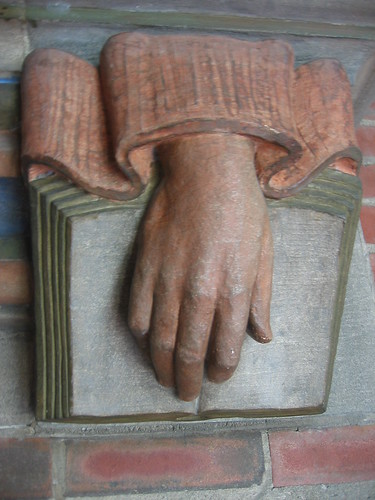On that last point, the best stories tend to revolve around the malevolent power of his longtime love Laura Riding. Michael Dirda, in Bound to Please, relates one of the most shocking. After a different lover rejected her, Riding:
sipped some Lysol, tootled, "Goodbye, chaps," and leaped out of a fourth-floor window. Robert immediately rushed down the steps; but realizing that his muse must surely be dead, he stopped on the third floor and jumped out a window after her.Astonishingly, both survived, though with substantial injuries. Riding would go on to dominate Graves's life for many years; there's an often harrowing account of her power in Once As It Was, Griselda Jackson Ohannessian's memoir of the years she spent as their neighbor in rural Pennsylvania when she was a girl. She tells of how Riding quickly brought all the nearby adults under her spell, and her descriptions of Riding's dominance are convincingly uncanny. As Dirda notes, Graves once remarked, "You have no idea of Laura's holiness"; if Ohanessian is to be believed, her holiness was more that of the pagan deity inexorably demanding sacrifice than of the sort that honors and rewards purity and goodness.
A much more gently amusing Graves anecdote entered my store this winter via Albert Vigoleis Thelen's magnificent, enormous novel The Island of Second Sight. It's a thinly veiled--though beautifully, inventively, and hilariously stylized--account of the years Thelen spent on Mallorca in the run-up to World War II. Among the modest European expatriate community is Graves, who enlists Thelen to translate some of his work into German. The amusing bit, though, is how Thelen tells us Graves introduces himself to everyone he meets: shaking the person's hand vigorously, he says, "Robert Van Ranke Graves, Goodbye to All That." No use courting confusion, I suppose.
Which leads us to the book that made Graves's name, and for which he's still best known, Goodbye to All That. Published in 1929, it was one of a wave of memoirs of the Great War, and, along with Siefried Sassoon's and Edmund Blunden's memoirs, it has remained one of the key documents of the experience of the trenches. So imagine my surprise when I realized how much comedy was in it--this is no All Quiet on the Western Front. Oh, there are horrors aplenty, and much of the humor is of the nihilistic black sort that, it seems likely, has always been part of the soldier's experience. But there is also the occasional bit of pure, if savagely ironic, comedy, as in this passage from Graves's first extended leave, in 1916. Home with his parents, he allows himself to be badgered into attending church in the morning--his mother taking "no active part in the argument, just looking sad"--rather than catching up on months of lost sleep. Church is to be at 9:30, which Graves thought "unusually early for matins," but attributed to "the new wartime principle of getting things over quickly." Then comes a knock at the door:
The proprietor of a neighbouring bath-chair business was waiting with a bath-chair. He explained that, as he had previously told my mother, they could not spare a man to take it to church, being seriously under-staffed because of the war--his sole employee, the only one left, had a job pulling the aged Countess of I-forget-what to the Parish Church, a mile or so in the opposite direction. For the moment I thought that it had been a very generous thought of my mother's on my behalf, but, ill as I felt, I could surely manage to reach the church, about half a mile away, without such a parade of infirmity. I forgot my father's gout, and also forgot that passage in Herodotus about the two dutiful sons who yoked themselves to an ox-cart, pulled their mother, the priestess, to the Temple, and were oddly used by Solon, in a conversation with King Croesus, as a symbol of ultimate human happiness.Had Solon tried to make the same example of Graves, I expect he would have received some choice words in return. In reality, though, Graves "could only laugh" and take up the "beastly vehicle." The church, as you've surely already assumed, was up a hill.
It got worse from there:
By half-past ten the service did not seem to be getting on as fast it should have, and I grew dreadfully bored, longing to sneak outside for--well, anyhow, I wanted to sneak outside.Welcome home from the trenches, son! We've missed you terribly!
I whispered to my mother: "Isn't it nearly over?"
She answered: "My dear, didn't your father tell you that it would be a three-hour service? And, of course, since you couldn't get up to pull him to church for the early service, he'll want to stay for Holy Communion at the end. That will make it a little longer."
One question before I wrap this up: Does anyone feel confident about what Graves was planning to sneak out of church to do? Smoke or drink, one would assume, but if that's it, why not just say so explicitly? Any other ideas?
